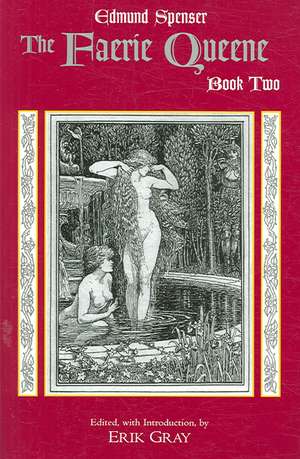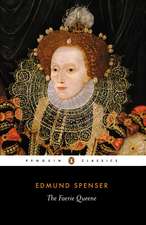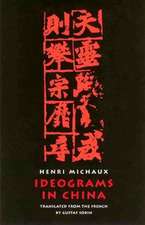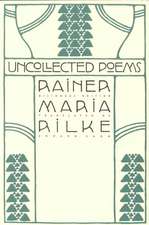The Faerie Queene, Book Two: Hackett Classics
Autor Edmund Spenser Editat de Erik Gray, Abraham Stollen Limba Engleză Paperback – 15 sep 2006
| Toate formatele și edițiile | Preț | Express |
|---|---|---|
| Paperback (1) | 102.18 lei 3-5 săpt. | +21.58 lei 5-11 zile |
| Hackett Publishing Company – 15 sep 2006 | 102.18 lei 3-5 săpt. | +21.58 lei 5-11 zile |
| Hardback (1) | 245.82 lei 3-5 săpt. | |
| Hackett Publishing Company – 15 sep 2006 | 245.82 lei 3-5 săpt. |
Din seria Hackett Classics
-
 Preț: 65.88 lei
Preț: 65.88 lei - 15%
 Preț: 195.50 lei
Preț: 195.50 lei - 14%
 Preț: 184.08 lei
Preț: 184.08 lei - 7%
 Preț: 81.60 lei
Preț: 81.60 lei - 8%
 Preț: 345.52 lei
Preț: 345.52 lei - 7%
 Preț: 143.79 lei
Preț: 143.79 lei - 8%
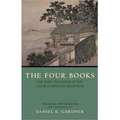 Preț: 106.45 lei
Preț: 106.45 lei - 8%
 Preț: 314.30 lei
Preț: 314.30 lei - 14%
 Preț: 171.00 lei
Preț: 171.00 lei - 11%
 Preț: 209.65 lei
Preț: 209.65 lei - 8%
 Preț: 125.82 lei
Preț: 125.82 lei - 7%
 Preț: 108.56 lei
Preț: 108.56 lei - 8%
 Preț: 309.90 lei
Preț: 309.90 lei - 9%
 Preț: 318.62 lei
Preț: 318.62 lei - 8%
 Preț: 293.06 lei
Preț: 293.06 lei - 18%
 Preț: 336.33 lei
Preț: 336.33 lei - 8%
 Preț: 292.34 lei
Preț: 292.34 lei - 8%
 Preț: 138.63 lei
Preț: 138.63 lei - 11%
 Preț: 210.28 lei
Preț: 210.28 lei - 7%
 Preț: 74.13 lei
Preț: 74.13 lei - 13%
 Preț: 263.30 lei
Preț: 263.30 lei - 13%
 Preț: 262.04 lei
Preț: 262.04 lei - 8%
 Preț: 85.81 lei
Preț: 85.81 lei - 12%
 Preț: 269.79 lei
Preț: 269.79 lei - 7%
 Preț: 101.44 lei
Preț: 101.44 lei - 8%
 Preț: 92.26 lei
Preț: 92.26 lei - 14%
 Preț: 183.57 lei
Preț: 183.57 lei - 9%
 Preț: 304.37 lei
Preț: 304.37 lei - 8%
 Preț: 294.64 lei
Preț: 294.64 lei - 14%
 Preț: 171.16 lei
Preț: 171.16 lei - 7%
 Preț: 128.27 lei
Preț: 128.27 lei - 8%
 Preț: 299.09 lei
Preț: 299.09 lei - 13%
 Preț: 264.76 lei
Preț: 264.76 lei - 8%
 Preț: 332.07 lei
Preț: 332.07 lei - 13%
 Preț: 246.98 lei
Preț: 246.98 lei - 13%
 Preț: 243.54 lei
Preț: 243.54 lei - 13%
 Preț: 265.61 lei
Preț: 265.61 lei - 8%
 Preț: 310.67 lei
Preț: 310.67 lei - 8%
 Preț: 118.74 lei
Preț: 118.74 lei - 7%
 Preț: 323.40 lei
Preț: 323.40 lei - 8%
 Preț: 331.87 lei
Preț: 331.87 lei - 13%
 Preț: 175.48 lei
Preț: 175.48 lei - 8%
 Preț: 327.47 lei
Preț: 327.47 lei - 13%
 Preț: 231.00 lei
Preț: 231.00 lei
Preț: 102.18 lei
Preț vechi: 109.76 lei
-7% Nou
Puncte Express: 153
Preț estimativ în valută:
19.55€ • 20.34$ • 16.14£
19.55€ • 20.34$ • 16.14£
Carte disponibilă
Livrare economică 24 martie-07 aprilie
Livrare express 08-14 martie pentru 31.57 lei
Preluare comenzi: 021 569.72.76
Specificații
ISBN-13: 9780872208476
ISBN-10: 0872208478
Pagini: 288
Ilustrații: Illustrations
Dimensiuni: 9 x 215 x 15 mm
Greutate: 0.34 kg
Editura: Hackett Publishing Company
Colecția Hackett Publishing Company, Inc (US)
Seria Hackett Classics
ISBN-10: 0872208478
Pagini: 288
Ilustrații: Illustrations
Dimensiuni: 9 x 215 x 15 mm
Greutate: 0.34 kg
Editura: Hackett Publishing Company
Colecția Hackett Publishing Company, Inc (US)
Seria Hackett Classics
Recenzii
Teachers of Spenser will also welcome two more installments of the Hackett editions of separate books of The Faerie Queene under the general editorship of Abraham Stoll, this time on books 2 and on books 3 and 4. In my view, these are the most attractive, inexpensive, but also comprehensive editions to date, with far better (and easy to read) notes on mythology and name symbolism (matters increasingly foreign to our undergraduates) than almost all previous versions. --Catherine Gimelli Martin, Studies in English Literature 1500-1900
In his introduction, Erik Gray offers a tidy preface to book 2 of The Faerie Queene, providing a brief but provocative discussion of some of Spenser's sources and poetic models. In his introductory subsections, Gray's analysis begins with more basic material and becomes progressively complex in sequential paragraphs, offering compelling points of departure for further study by readers at all levels. In addition, Gray offers a list of some later writers influenced by Spenser's writing, situating Spenser in the broader literary canon and defining some preliminary connections for students for many literary fields. To encourage the reader's further inquiry, Gray highlights a particularly troubling passage from book 2, offering various critical perspectives on the portrayal of Temperance therein, and grounding further interpretation. --Rachel E. Frier, Sixteenth Century Journal
In his introduction, Erik Gray offers a tidy preface to book 2 of The Faerie Queene, providing a brief but provocative discussion of some of Spenser's sources and poetic models. In his introductory subsections, Gray's analysis begins with more basic material and becomes progressively complex in sequential paragraphs, offering compelling points of departure for further study by readers at all levels. In addition, Gray offers a list of some later writers influenced by Spenser's writing, situating Spenser in the broader literary canon and defining some preliminary connections for students for many literary fields. To encourage the reader's further inquiry, Gray highlights a particularly troubling passage from book 2, offering various critical perspectives on the portrayal of Temperance therein, and grounding further interpretation. --Rachel E. Frier, Sixteenth Century Journal
